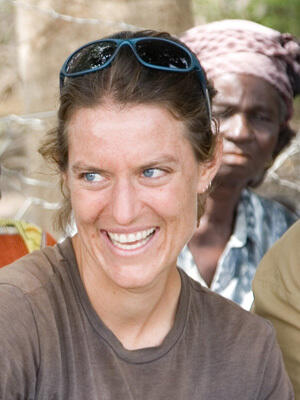Glwadys A. Gbetibouo
Energy and Environment Building
MC 4205
473 Via Ortega, room 365
Stanford CA 94305
Glwadys Aymone Gbetibouo is a citizen from Côte d’Ivoire (Ivory Coast) where she received an Ingénieur Agronome degree in 2000 at the Institut National Polytechnique Houphouët Boigny. She then joined the University of Pretoria to pursue post-graduate studies in agricultural and environmental economics and policy analysis. She obtained both a MSc degree in Agricultural Economics in 2004 and a PhD in Environmental Economics in 2011 from the University of Pretoria. Her research interests include global warming and agriculture. Her area of expertise is on measuring the impacts of climate change on agriculture and the adaptation behavior and vulnerability of rural communities to climate change and variability.
Prior to joining FSE, Glwadys has been working as an international climate change consultant at C4EcoSolutions, a private consulting firm based in South Africa. During her time at C4 EcoSolutions, she has been involved in developing climate change adaptation project documents for the United Nations Agencies for funding under the Global Environmental Fund (GEF) Least Developing Countries Fund (LDCF) and Special Climate Change Fund (SCCF). Also she has provided technical guidance and advisory services for the implementation of climate change projects in countries such as Djibouti, Lesotho. Mozambique, Niger and Zambia.
Glwadys’s current research is on small scale irrigation technologies and adaptation to climate change.


